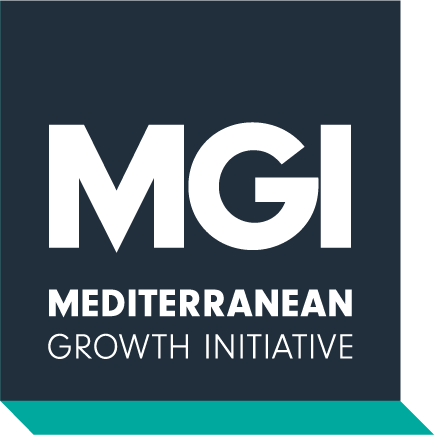MGI Weekly round-up | 13 April 2018
Stories MGI has been tracking this week:
- Labour costs in 2017 increase by 2.2% in Greece
- Croatia’s trade balance deficit widens in January
- Morocco's shadow economy accounts for 20% of GDP, study finds
And as always, we feature content from the MGI data and analysis platform, a summary of the week’s key statistical releases, and a look to the week ahead in data. In this newsletter, we use the MGI platform (WB section) to look at the evolution of Croatia’s external balance of goods and services as a percentage of GDP.
Labour costs in 2017 increase by 2.2% in Greece
According to data published by Eurostat on Monday, average hourly labour costs in Greece stood at €14.5 in 2017 – significantly lower than the EU and the Eurozone average of €26.8 and €30.3 respectively. Labour costs recorded a 2.2% increase compared to 2016. For reference, the amount was €16.8 in 2008, declined to €14.1 in 2015 and rose slightly (to €14.2) in 2016. As regards the breakdown of labour costs by economic activity, the highest costs were recorded in Industry (€15.3) and the lowest in Construction (€10.2).
In 2017, among EU Member States, the lowest average labour costs were recorded in Bulgaria (€4.9) and Romania (€6.3), while the highest in Denmark (€42.5), Belgium (€39.6) and Luxembourg (€37.6).
Croatia’s trade balance deficit widens in January
Preliminary figures from the Croatian Bureau of Statistics, released on Monday, indicate that Croatia's foreign trade gap widened at the beginning of the year. The trade deficit in January rose to€688.6 million from €476.3 million in the previous month and from €498 millionin the corresponding month last year.
The coverage of imports by exports in January was 60.1%. In particular, exports in goods fell to €1.04 million in January from €1.14 billion in the previous month, while imports increased to €1.7 billion from €1.6 billion.
Morocco's shadow economy accounts for 20% of GDP, study finds
This week the General Confederation of Enterprises of Morocco released the findings of a joint-study on the informal sector and its impact on firms’ competitiveness. The study was conducted in 2014 with Roland Berger, a strategy consulting company. The shadow economy – which includes all non-agricultural economic activities carried out without legal authorization – accounts for roughly 20% of the country’s GDP and occupies almost half of the country’s working population.
According to the report, the informal economy comprises 54% of the textiles and clothing industry, 32% of road freight transport, 31% of construction and 26% of the food and tobacco sector. The study also highlights that shadow economy operations generate nearly MAD 170 billion ($18.5 billion) in untaxed revenues, the Financial Tribune reports.
Featured content from the MGI data and analysis portal
In this week’s newsletter, we use the WB section of the MGI platform to look at the evolution of Croatia’s external balance of goods and services. The external balance of goods and services is the value of exports of goods and services less imports of goods and services. The period under examination is 1995-2016.
According to the following graph, the indicator was negative from 1995 to 2011 (the average for this period was -5.96%) and positive from the following year onwards (with an average of 1.68%). The indicator reached its peak of 3.04% in 2016 and a minimum value of -12.91% in 1997. In 2013, the year when Croatia became a Member State of the European Union, the external balance of goods and services already accounted for 0.5% of the country’s GDP.
The week in data
Highlights from national statistics releases tracked by MGI this week include:
- IPI in France in February 2018 increased by 1.2% compared to the previous month (seasonally and working-day adjusted data)
- Italy's IPI in February 2018 decreased 0.5% MoM (seasonally adjusted data), increased 2.5% YoY (calendar adjusted data) and 2.4% YoY (unadjusted data)
- Consumer prices in France increased 1.6% YoY and 1% MoM in March 2018 (final results)
- Palestine's CPI in March 2018 decreased 0.12% (MoM) and 2.11% (YoY)
Looking ahead
Next week, we expect inflation data for several Mediterranean countries and real GDP figures for Israel for 2017Q4. MGI’s complete data release schedule can be viewed at our release calendar section.
Monday 16 April, 2018:
- Turkey IPI for February
- Turkey unemployment rate and employment for January
- Israel consumer confidence for March
- Israel real GDP for 2017Q4, third estimate
- Israel central bank interest rate decision
- France 3-month, 6-month and 12-month BTF auction
Tuesday 17 April, 2018:
- Turkey retail sales for February
- Italy domestic and harmonized inflation for March, final estimates
- Italy balance of trade for February
- Croatia inflation rate for March
- Slovenia employment (register data) for February
Wednesday 18 April, 2018:
- Italy industrial orders and industrial sales for February
Thursday 19 April, 2018:
- Israel inflation expectations for April
- Spain 3-year, 5-year Bonos auction and 10-year Obligacion auction
- France 3-year and 5-year BTAN auction
Friday 20 April, 2018:
- Turkey consumer confidence for April
- Turkey central government debt for March
- Spain balance of trade for February
- Morocco inflation rate for March
- Slovenia employment (detailed register data) for February

